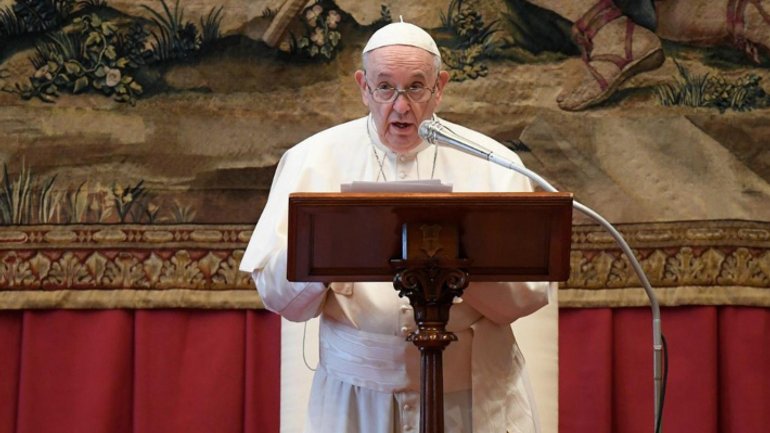Pope to diplomats: Find acceptable solutions to end the war in Ukraine

This is reported by the Secretariat of the Head of the UGCC in Rome.
After a welcoming speech by His Excellency George Poulides, Ambassador of Cyprus and dean of the diplomatic corps, the pope addressed the audience with a speech in which he pointed out the main global problems in the modern world.
Calling on the international community to make every effort to end the war in different parts of the world, Pope Francis also mentioned Ukraine.
"Mutual trust and readiness for a calm dialogue should inspire all parties involved to find acceptable and lasting solutions in Ukraine and the South Caucasus, as well as to avoid the emergence of new crises in the Balkans, especially in Bosnia and Herzegovina," the Holy Father stressed.
In his address to representatives of 183 states with which the Holy See has diplomatic relations, Pope Francis touched upon the topic of the modern pandemic, emphasizing the need to preserve human life through preventive medicine and immunization of the population.
"The vaccine is not a magical tool for recovery, but together with the treatments that need to be developed, it is the smartest way to prevent the disease."
Pope Francis also summed up his apostolic activities in the field of diplomacy over the past year. Among the main events, he pointed to meetings with leaders from different countries of the world, holding the World Day of prayer for Lebanon on July 1, an apostolic trip to Iraq, participation in the Eucharistic Congress in Budapest, Apostolic trips to Greece and Cyprus.
The Holy Father paid special attention to the problem of emigration in the modern world, calling for "rejecting the belief that emigrants are the problem of others."
"It should be noted that very often emigrants become the subject of political blackmail, a certain kind of "commercial product" that deprives them of human dignity."
The Pope called on the governments of the European Union to find an appropriate system for coordinating migration flows and those in need of asylum.
"The issues of migration, as well as the problem of the pandemic and climate change, clearly show us that no one can escape on their own, and all the great challenges of our time are global in nature," the Pope concluded.
In the context of the conversation about achieving peace in the modern world, Pope Francis reiterated the need for education and upbringing to build a "culture of dialogue", recalling his recent message on the occasion of World Peace Day.
"Education is the primary vector of Integral Human Development, as it makes it free and responsible."
It is education that "creates culture and builds bridges of meeting between peoples." The Pope pointed out the problem of virtual self-isolation, which many people have fallen into during the pandemic. He stressed that he does not want to "deny the usefulness of modern technologies", but warns against the danger of replacing "real human relations" with virtual ones.
The Holy See has diplomatic relations with 183 countries around the world, to which the European Union and the Order of Malta are added. Diplomatic institutions with a seat in Rome under the Holy See have 87 countries.









